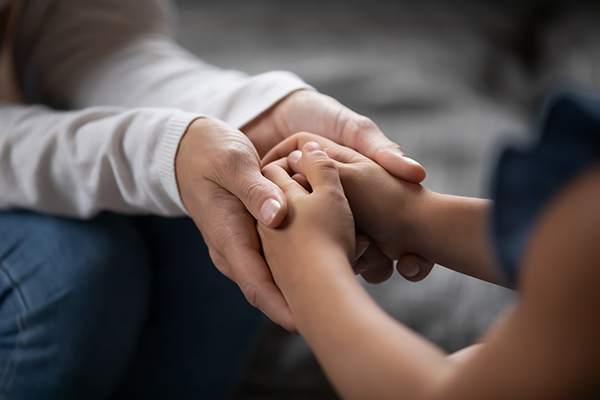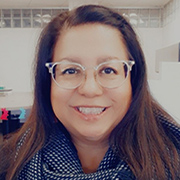Ina, etsi, shi maa, itangu. These are some of the ways I’ve heard indigenous people say, Mother. These are in the languages of just a few of the Indigenous people of North America, more specifically Lakota, Cherokee, Navajo, and Hopi, in that order. As a Lakota woman, I grew up using ina and unci (grandmother), but I prefer to call my mom by her name, Mary.
When I think about the wisdom I have received from my mother, the first thing that came to my mind was the “mom-isms” I grew up with.
“Don’t go out with wet hair.”
“It’s ok to be poor; it’s not ok to be dirty.”
“Clean up after yourself.”
“Close the door; the AC is on.”
“Take a quarter in case you need to make a phone call.”
The last one was very important because I grew up in the era of pay phones. I often wondered if there was a list of things mothers are expected to say upon becoming a mother to their first child. Only having been a step-mom or auntie, I wasn’t given the mom-ism list. I have, however, kept the sage advice of my mother permanently saved in a folder in my brain.
 As an adult with an aging mother, I want to talk to her more and more. I want to ask questions about her childhood, things she never told me about, and the places and people she visited and met. When I was younger, I didn’t want to hear anything she had to say. But now I realize that the time God has lent her to me will be over sooner than I would like. I want to hear every ounce of wisdom she can give me. My youthful days of being insolent are now over as I have realized what a gift my mother has been to me.
As an adult with an aging mother, I want to talk to her more and more. I want to ask questions about her childhood, things she never told me about, and the places and people she visited and met. When I was younger, I didn’t want to hear anything she had to say. But now I realize that the time God has lent her to me will be over sooner than I would like. I want to hear every ounce of wisdom she can give me. My youthful days of being insolent are now over as I have realized what a gift my mother has been to me.
My mother is a pastor in the ELCA. She’s Oglala Lakota with Swedish ancestry. She was ordained in 2000 at Christ Lutheran in San Francisco after completing the TEEM program, an ELCA leadership formation process, at Pacific Lutheran Theological Seminary (PLTS). Her first call was in Cherokee, North Carolina, at Living Waters Lutheran Church. Pastor Mary Louise Frenchman is now the pastor at Native American Urban Ministry in Phoenix, Arizona. I am now the Vicar at Native American Urban Ministry, a candidate for Word and Sacrament in the ELCA in the new Theological Education for Indigenous Leaders program through PLTS. I am also Oglala Lakota and Lenape, from my father’s tribe.
Our roles in the ministry mean that we get to work together, and I rely heavily on my mother’s advice. Learning to preach while navigating my candidacy in the ELCA she has been a Godsend in guiding me on my journey. The days of saying “Take a quarter” have been replaced with “Do you have your Bible?” And I’m here for it.
I would have never seen myself being able to work so closely with my mother, as we are very much opposites, but I wouldn’t want to work with anyone else. She is smart, sassy, biblically equipped and Holy Spirit-filled. I will have incredibly big shoes to fill when, one day, she does decide to retire for good.
Not everyone is lucky enough to have a mother in their lives, especially one like mine. I would be remiss if I didn’t give honor to all the indigenous children who were taken from their homes and families and put into residential boarding schools. These generations of children were raised by clergy nuns and priests who were not there as parental figures, or by military staff, also not there as parental figures. This lack of parenting and the erasure of Indigenous culture has caused generational trauma that is still being felt among Indigenous people today. All four of my grandparents survived residential schools physically, but one of my grandparents was scarred psychologically for life. My Lakota Unci (grandmother) was so mentally abused by the nuns who raised her that she decried any and all religion if it involved Jesus. I wish that she was still alive because I would love to show her the God I know, the God of mercy and love and kindness and healing.
The God I know was introduced to me by my mother. I watched her as she ministered to the Cherokee people, who were far away from home, and she was far from her own family. I witnessed her strength and determination over the years, and then even more so when she started Native American Urban Ministry. Our ministry is a place of love, acceptance and healing because many Indigenous people come to us with wounds inflicted by Christianity. We honor our culture at every worship service and include traditional Indigenous songs and language as well as scripture and communion.
Wisdom is the ability to use knowledge and experience to make good decisions and judgments. I may not use my best judgment every day, but I hope at the end of the day I’ve done my mother proud. She has passed on her wisdom to me in so many ways, by example, by teaching, by preaching, by sacrificing it would seem Jesus and my mother have something in common.
The wisdom of mothers is mentioned in Proverbs 31. The Bible also asks followers to honor and love their mothers in Exodus and Leviticus and mentions mothers in several other books. One of my favorite verses is from Proverbs 31:25 “Strength and dignity are her clothing, and she laughs at the time to come.”
If you weren’t blessed with a mother’s influence in your life, I pray you find one, a loving and caring person who has plenty of wisdom to share with you. If you were blessed to have a mother, I don’t know what you call her, but I hope it’s something that holds special meaning for you both. And if you’ve yet to become a mother, I pray you have strength and dignity, and you laugh at the days to come.
Closing prayer:
Great and Holy Spirit, our Creator God, we give you heartfelt thanks for the mothers and mothering influences in our lives. We are grateful also for the gift of motherhood in all its many forms; for strength and dignity, patience and love. Bless them Creator with joy, good health and guidance, be with them as they continue to bless us with their mothering ways. Amen.
 Wanda K. Frenchman is an Indigenous leader in the ELCA. She is a member of the Oglala Lakota (South Dakota) and Lenape (Oklahoma) tribes and serves as the vicar for Native American Urban Ministry in Phoenix, Arizona. The ministry serves all urban Natives in Phoenix, providing a community for believers and traditional culture to come together for spiritual growth. She is currently a student at Pacific Lutheran Theological Seminary in the new TEIL (Theological Education for Indigenous Leaders) Program, with the hopes of taking over leadership for NAUM. She is a Mission Developer and Fund for Leaders Mission Developer Scholarship winner in 2021. She has a twin sister, Yolanda and is the daughter to the Rev. Mary Louise Frenchman. Her passions include playing competitive billiards, doing yoga, reading, traveling, bible study and attending Native American powwows and ceremonies.
Wanda K. Frenchman is an Indigenous leader in the ELCA. She is a member of the Oglala Lakota (South Dakota) and Lenape (Oklahoma) tribes and serves as the vicar for Native American Urban Ministry in Phoenix, Arizona. The ministry serves all urban Natives in Phoenix, providing a community for believers and traditional culture to come together for spiritual growth. She is currently a student at Pacific Lutheran Theological Seminary in the new TEIL (Theological Education for Indigenous Leaders) Program, with the hopes of taking over leadership for NAUM. She is a Mission Developer and Fund for Leaders Mission Developer Scholarship winner in 2021. She has a twin sister, Yolanda and is the daughter to the Rev. Mary Louise Frenchman. Her passions include playing competitive billiards, doing yoga, reading, traveling, bible study and attending Native American powwows and ceremonies.


Having known Mary Louise and Wanda for many moons, it’s been a joy to watch the progression of the Native American ministry. Excellent reflection from Wanda.. . .just in time for Mother’s Day.
Wanda. What an awesome tribute to your mother. It has been an honor to be present when she has shared glimpses of her trials and tribulations in service to the ELCA.
My prayers are with you as your goal to continue leadership in NAUM.